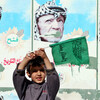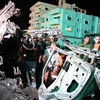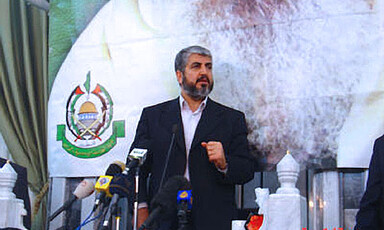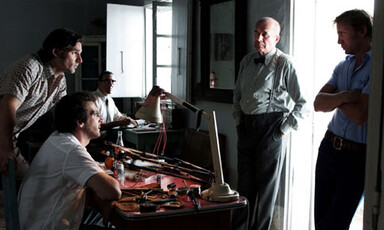
Arab music tour to benefit music education in Palestine
6 February 2006
The ensemble
Playing lively arrangements based on classical themes, four Palestinian musicians will perform authentic instrumental Arab music in the U.S. for the first time, from February 14-24. Proceeds of the American Near East Refugee Aid (ANERA) sponsored concert tour will support the Palestine Youth Orchestra of the Edward Said National Conservatory of Music. Touring New York, Washington, D.C., and Philadelphia, the four Palestinian members of this unique Ensemble are faculty of The Edward Said National Conservatory of Music where both Arab and western music is taught to 550 Palestinian students of elementary through high school age annually, even under the difficult conditions of Palestine. Read more about Arab music tour to benefit music education in Palestine








